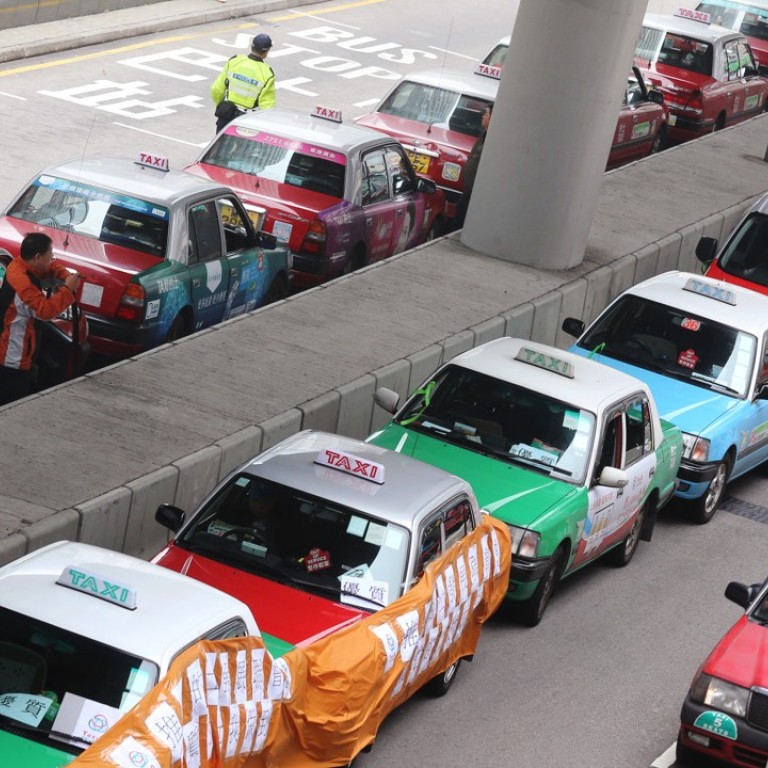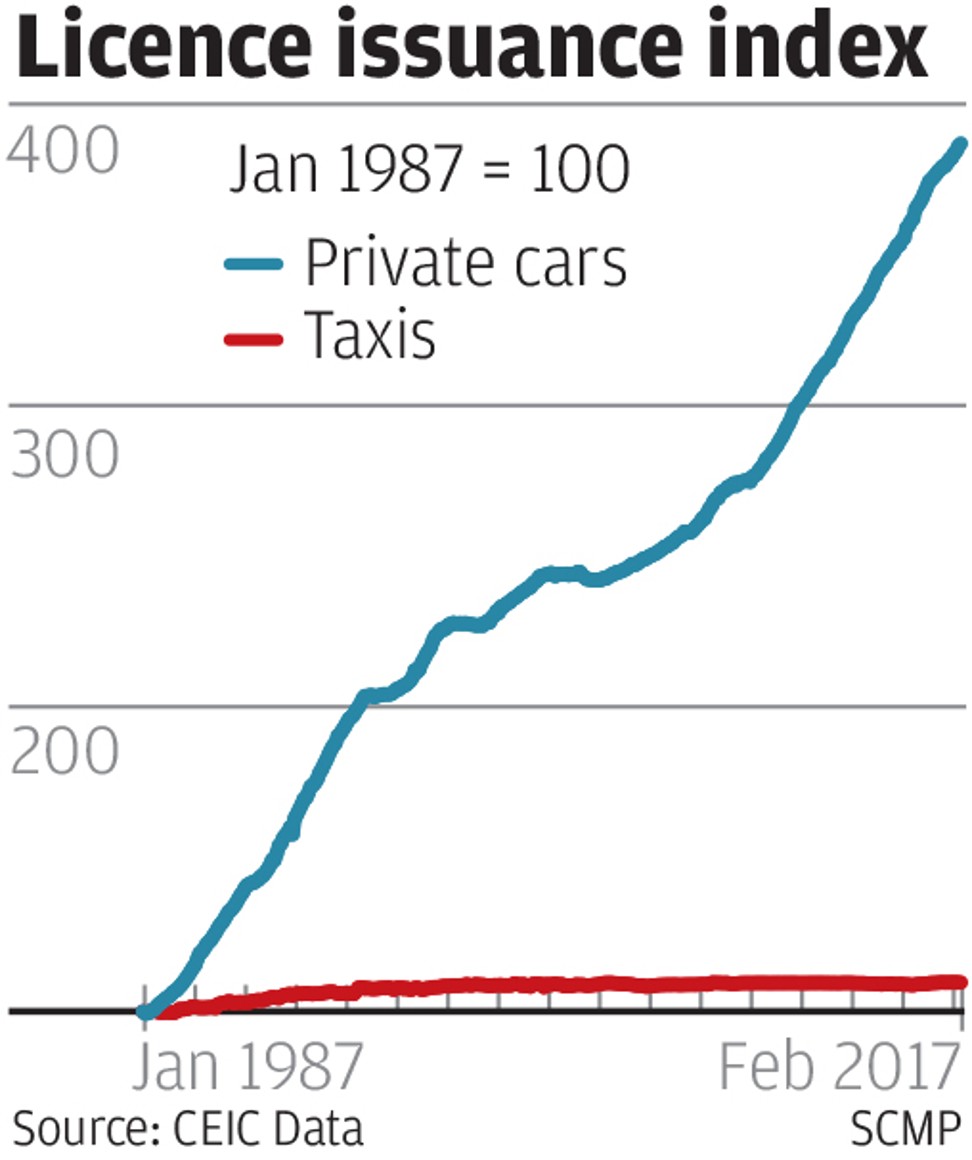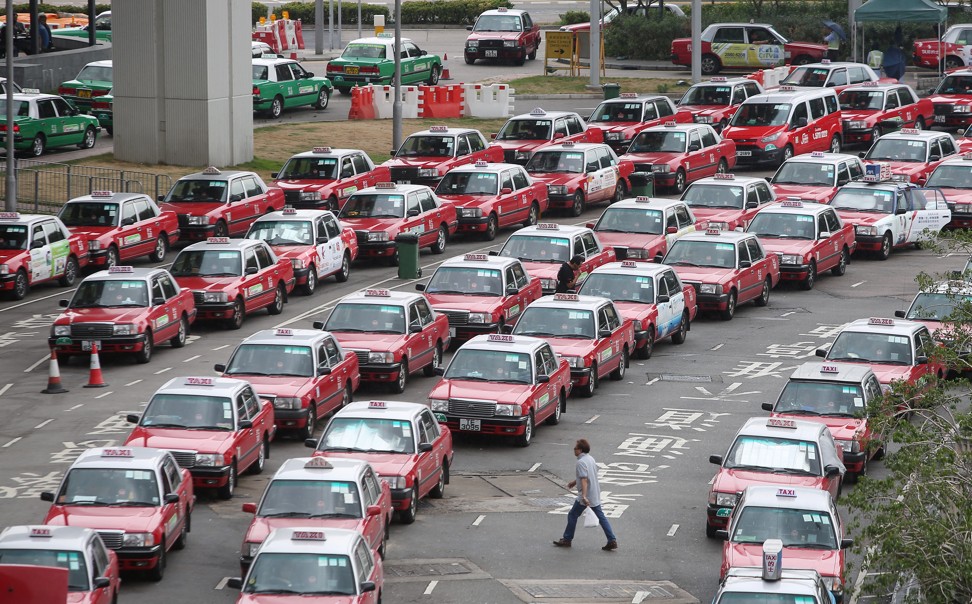
Opinion: Here’s how to make a surly cabbie smile - burst Hong Kong’s taxi license bubble
All the problems we have with Hong Kong’s taxis come down to official protection of the city’s HK$120 billion speculative bubble.
Restrictions on driving commercial vehicles will be eased to allow younger people to fill shortages in the ageing workforce, especially the taxi and container truck sectors ...
South China Morning Post, City, May 10
One thing our bureaucrats refuse to do in addressing the ailments of the taxi industry is look in a mirror. There they would find both the problem and the solution.
They would be forced to recognise that their negligence has allowed a HK$120 billion (US$15.4 billion) speculative bubble to emerge in the industry and that the only way they can fix things is to deflate that bubble. They will fix nothing if they allow it to remain.
The fact is that a standard fully equipped Toyota Comfort taxi costs about HK$250,000. To put one on the road for hire, however, requires buying a taxi licence from an existing holder of one, and this costs about HK$7 million, which values the entire taxi fleet at about HK$120 billion.
So here is the big question: what do the licence holders do to earn that extra HK$6.75 million between the cost of the car and the right to put it on the road?
Your answer is that they do nothing at all. They are purely speculators in the taxi market, parasites on the public, leaches that attach themselves to you every time you take a taxi.
We got into this mess because the number of taxis on the road has been frozen for 30 years, even while the number of licensed private cars has risen almost threefold (see chart).

Instead, the owner-speculator charges the hired driver a fee of as much as HK$440 a shift, which means the driver has to struggle along on an income of little more than HK$10,000 a month and often less, which is why we have so many 70-year-old drivers.
They are paid too little. Young people want better, and thus shun tiresome dead-end jobs like taxi driving.
The most recent proposal to let them drive taxis with only one year of driving experience instead of three, will change nothing. The problem is not the restrictions on driving a taxi but on owning one.
We had a chance to start unwinding this ridiculous anomaly recently when the taxi speculators asked legislators to raise taxi fares so that drivers could be better paid.

Instead, legislators allowed the speculators to get away with another rip-off. Taxi owners have 39 of the 191 votes for the transport functional constituency seat in the Legislative Council. They control it and can use its voting power to protect their unearned wealth. The MTR, by the way, gets only one vote for that seat.
All the problems we have with taxis -- the surly drivers, the refusal to allow Uber-style calling services, the disappearance of taxis at shift change time -- come down to official protection of that HK$120 billion speculative bubble.
It stands in the way of all reform of the taxi industry. Nothing can change until we get rid of it.
The biggest obstruction of all is that officialdom refuses to recognise this monster it has created, by choking off issuance of new taxi licences and then granting fare increases that are immediately drained from the pockets of the drivers to enrich the speculators.

